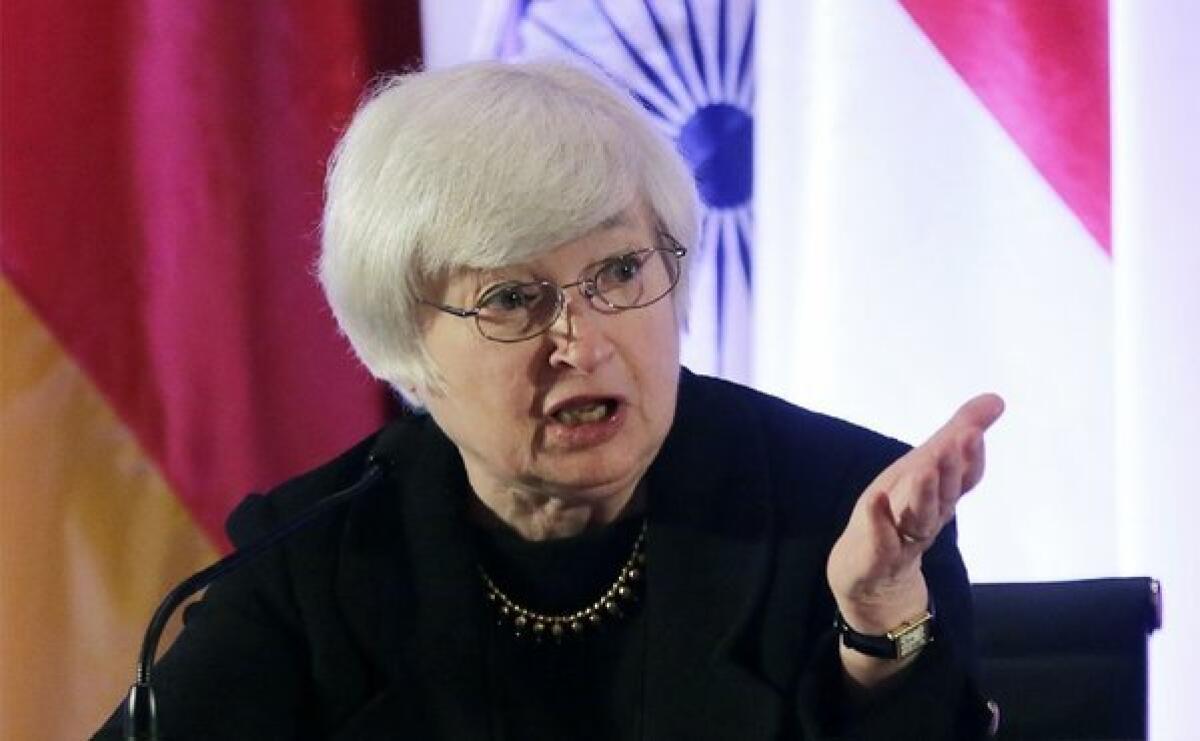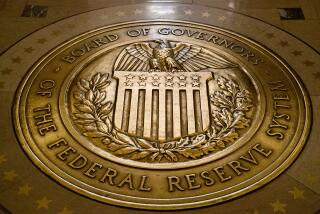Yellen goes to prison

There is much to praise in President Obama’s nomination of Janet Yellen as Federal Reserve chair. She’s a superbly qualified economist with an excellent eye for emerging trends.
Yellen wasn’t alone among Fed governors in predicting the coming financial turmoil at the crucial Fed Open Market Committee meeting in December 2007, but her analysis was surely the most penetrating in the room. As president of the San Francisco Fed, she picked up on the emerging credit crunch, the coming spillovers from the housing and financial contractions to the broader economy, and the shutdown of consumer spending. As she noted, spending already was “dead in the water, and households are growing more pessimistic about future prospects.”
Her observations were taken as a benchmark by several other Fed governors in the room: “I think I took the same pessimism pill as President Yellen this morning,” remarked Boston Fed President Eric Rosengren.
During the extended Washington cabaret this summer and fall over whether Obama would nominate Yellen or Lawrence Summers to the Fed chair, reams of newsprint, digital and otherwise, were expended on parsing the relative dovishness or hawkishness of the two candidates on inflation and the “taper” -- the Fed’s eventual withdrawal from its policy of easy money.
Much of the discussion had a highly granular aspect, like the scholastic debates of medieval monks, because in the broadest sense there probably wasn’t much daylight between the likely monetary policies of Summers and Yellen. That’s because the Fed chair’s policy choices are typically constrained--even imprisoned--by circumstances. In calm times there’s considerable latitude within the Fed’s authority, sure; but in tough or chaotic times the question gets reduced to whether the Fed has legal authority to do what it must.
Under normal circumstances, the consensus said, Summers would taper earlier and faster than Yellen. But these aren’t normal times. While Congress remains intent on risking economic growth with its shenanigans, the taper is surely off the table -- and would be no matter who’s in the Fed chair.
The GOP-led government shutdown has already trimmed half a percentage point off gross domestic product, according to some estimates. That’s almost certain to be a conservative estimate. The debt-limit brinkmanship has already done more damage in the equity markets, the bond markets, and in consumer and business confidence.
When the fourth-quarter numbers come in -- the first that Yellen will confront as Fed chief -- they are bound to be ugly, ugly, ugly. But does anyone really think that Lawrence Summers as Fed chair would be inclined to taper just now? As long as Congress lays its dead hand on fiscal policy, U.S. economic growth is in the hands of monetary stimulus from the Fed, and that would almost surely be true, no matter who was appointed by a Democratic President.
That’s not to say that there aren’t uniquely positive points in Yellen’s favor, though they tend to be overstated by her fans. Yes, it’s a genuine plus to have a woman at the summit of monetary policy-making anywhere in the industrialized world for the first time.
One of her biggest cheerleaders, Justin Wolfers of the University of Michigan, makes much of her “humanism.” That’s a trait she shared with her outstanding mentor at Yale, the liberal Nobel laureate James Tobin, who was also acutely sensitive to the impact of economic policy on individuals and the community.
But it’s worth noting that a fair amount of humanism is baked into the modern Fed thanks to its creator, Marriner Eccles, who was asked by Franklin Roosevelt to remake the Fed so it would never stand idly by in an economic crisis, as it did at the onset of the Great Depression. Eccles had seen the effect of bad policy firsthand, as the owner of a struggling Utah bank.
Seeing his customers lined up in desperation for their money, Eccles wrote, “The scales fell from my eyes. I saw for the first time that though I’d been active in the world of finance and production for 17 years and knew its techniques, I knew less than nothing about its economic and social effects.” His determination to learn turned him into a proto-Keynesian, and the structure he created for the Fed and his policies as the new board’s first leader made the institution a powerful force for economic and job growth.
That’s why the Fed headquarters on Constitution Avenue is known as the Marriner Eccles building. Yellen will be his successor, and an apt one.
More to Read
Get the L.A. Times Politics newsletter
Deeply reported insights into legislation, politics and policy from Sacramento, Washington and beyond. In your inbox three times per week.
You may occasionally receive promotional content from the Los Angeles Times.











